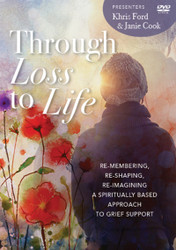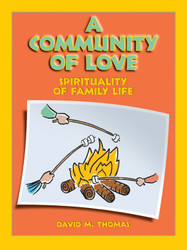To Love this Earthly Life, reflections on the book of Ecclesiastes, is the latest work by Trappist monk Michael Casey, whose biblical studies bridge the divide between scholarly analysis and prayerful reflection. The title may surprise readers, who regard the author Qoheleth as a gloomy fellow. But as Fr. Casey notes, “His central point is, quite simply: Make the most of your life as it is, because it is the only one you will ever have. . . . If we cannot love the reality we see, any love we profess toward what is unseen must be considered delusional. . . . So, let’s get on with it.” Examining such themes as vanity, God, wisdom, time, and carpe diem, Fr. Casey shows how they all build to a constant message of hope by living in the present.
Product Preview
| Format: | Paperback book |
|---|---|
| Product code: | OB984561 |
| Dimensions: | 5.25" x 8.25" |
| Length: | 176 pages |
| Publisher: |
Orbis Books
|
| ISBN: | 9781626984561 |
| 1-2 copies | $21.60 each |
|---|---|
| 3-5 copies | $20.40 each |
| 6-10 copies | $19.20 each |
| 11+ copies | $18.00 each |
Praise
Casey reflects on Qoheleth’s reflections on life through the lens of the well-known expression carpe diem, which he renders ‘make haste to pick the fruit now, tomorrow is uncertain.’ The yield produced here is rich indeed.
Diane Bergant, Catholic Theological Union
Few of us have more than a superficial acquaintance with the book of Ecclesiastes. Mistakenly, we think we know enough of its message: “vanity of vanities, all is vanity.” But if we stop there, we have much to lose. In his skillful exploration of the realities of life as perceived by Qoheleth, Michael Casey offers us a compass for new perspectives on our own life experiences. Following the pathways he forges, we discover a wisdom that enables us to fully live—and love—each day of our earthly life in all its “mixity”. It is a wisdom that will enrich our lives.
Sister Anne Elizabeth Sweet, OCSO
What a wise and experienced travelling companion we have in Michael Casey on a journey through Ecclesiastes! Here he offers ‘pathways’ to explore the rugged and sometimes bewildering terrain of the text and of our inner lives. Among many tips for the trek, Casey encourages us to slow down, be fully present to the moment, be content where you are in all its ‘mixity;’ and to trust in God’s providence—that it is leading you to an abundant life.
Kate Olson, former correspondent for “Religion & Ethics Newsweekly”
To Love This Earthly Life, leads us through Ecclesiastes (Qoheleth). The title may seem strange because of the many negative viewpoints that dot the book. But in fact, however, Ecclesiastes is a positive book that asks its readers to make the most of life: “because it is the only one you will ever have; don’t waste your energies on what does not matter....be mindful of the present moment and its potential” (p. xx). “Carpe diem...Make haste to seize the day and pick the fruit now because tomorrow is uncertain” (p. 128). We need to be present to the present while it is still present. To live fully each moment with undivided attention and mindfulness is the challenge; tomorrow may never come because everything is fleeting. Casey in six short chapters of this book steers us along the pathway he traces for us in lectio divina to negotiate the turns and twists in the text of Ecclesiastes and in our lives, so as to seize the blessings of the present moment (Chap. 7) and make the most of our lives.
Peter B. Lobo, OP., Dominican Ashram
Author
Michael Casey, OCSO, has been a Cistercian monk of Tarrawarra Abbey, Australia, since 1960. After ordination he received degrees in Scripture from Katholieke Universiteit te Leuven and completed his doctorate with Melbourne College of Divinity in 1980. Since then he has conducted formation programs, retreats and workshops in every continent, except Antarctica. His writings have been published in twelve languages.





![[Wisdom Commentary] Qoheleth (Ecclesiastes) [Wisdom Commentary] Qoheleth (Ecclesiastes)](https://cdn11.bigcommerce.com/s-86nw1qhj/images/stencil/190x250/products/4963/5429/cover-750__66299.1640222050.jpg?c=2)



